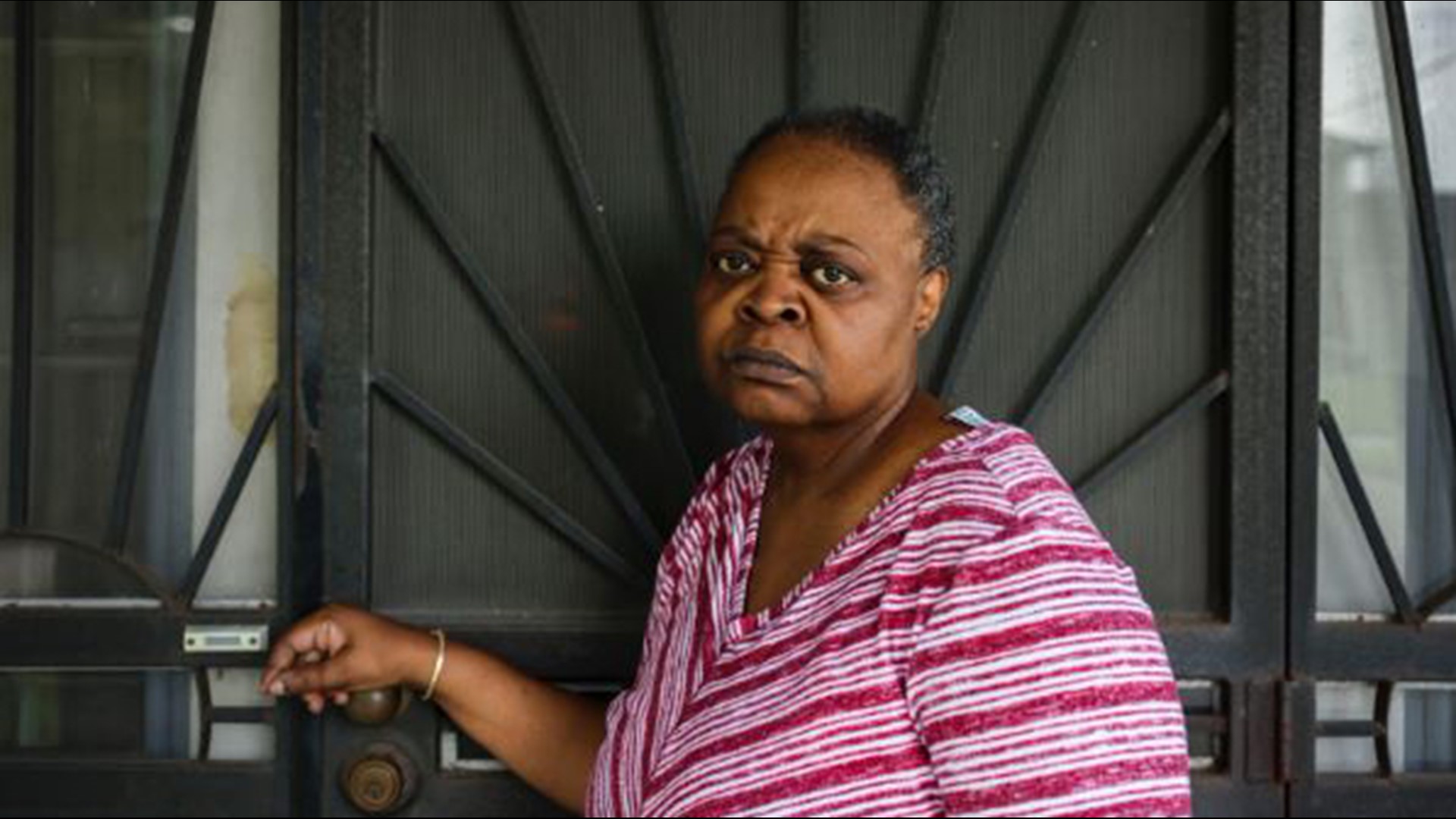NEW ORLEANS — Lawyers representing the state of Louisiana may have broken the law by trying to take back Hurricane Katrina rebuilding grants more than a decade after homeowners received them, a federal appeals court ruled Friday.
The decision could have far-reaching implications for hundreds of Louisiana homeowners who were threatened with lawsuits if they didn’t pay back some of the money they’d received from the Road Home program, the largest hurricane rebuilding program in U.S. history.
Attorneys representing two octogenarian widows say their clients are among about 1,200 Road Home recipients who got grants to rebuild their storm-ravaged homes and received letters from Baton Rouge-based law firm Shows, Cali & Walsh demanding that they pay some of the money back more than 10 years later.
Iris Calogero and Margie Nell Randolph sued the Shows firm in 2018, alleging the collection letters violated the Fair Debt Collection Practices Act, a federal law that protects people from unfair or abusive debt collectors. They sued on behalf of all “similarly situated” Road Home recipients.
U.S. District Judge Barry Ashe threw out the widows’ case twice without a trial, first in 2020 and again in 2022. Both times the U.S. Fifth Circuit Court of Appeals overruled Ashe.
On Friday, a four-judge panel of the Fifth Circuit said 10 years was far too late for the Shows firm to threaten lawsuits over stale debts that were “unenforceable,” even under the most liberal interpretation of the legal deadlines.
“It’s a strongly-worded ruling that clearly recognizes the plaintiffs have a claim that deserves to be heard by a jury,” said John Lovett, a professor at LSU Law School. “I applaud their lawyers, who persevered despite a district court that ruled against them… twice.”
The Shows firm claimed Calogero and Randolph failed to report some of the money they’d collected in 2005 from insurance and FEMA when they applied for and received Road Home grants in 2007. Under program rules, FEMA aid and insurance money should have been subtracted from the Road Home grant total.
Court records showed the Road Home program administrators learned about the overpayments to Calogero and Randolph shortly after paying them. But records showed the program made no effort to claw back any of that money until 2017, when the Shows firm sent collection letters.
“The Road Home was very confusing, and it was very difficult for the average homeowner to remember all these things for years and years after getting a grant,” Lovett said. “I don’t think these ladies were trying to defraud the state. If this had been brought to their attention early enough, I suspect they would have said, ‘You’re right, I got another few thousand dollars and I’ll reimburse it.’”
The women allege the Shows firm “intimidated” them by demanding they pay back thousands of dollars within 90 days or face legal action. The court also found the law firm mischaracterized Calogero’s debt by claiming she owed a penalty for not having flood insurance, even though the agreement she signed with Road Home didn’t say anything about such a penalty.
Calogero refused to pay back the $4,598 and sued the law firm. Randolph got a letter demanding $2,500 and was “terrified” of losing her home, so she capitulated and started paying it back a little at a time, the court found.
The appeals court ruled on Friday that a “reasonable jury could find” the law firm violated the Fair Debt Collection Practices Act in three different ways: by mischaracterizing Calogero’s debt, by threatening legal action that was already time-barred and by threatening to charge the women for legal fees that couldn’t be charged.
The court also found the Shows firm got Randolph to sign a promissory note to acknowledge the legitimacy of a debt that was stale, in exchange for letting her pay the money back at $25 per month. The court said that amounted to “concrete and cognizable harm” and supported the women’s claims that the Shows firm had caused them “fear, anxiety, and emotional distress.”
“When a collection letter creates confusion about a creditor’s right to sue, that is illegal,” the four-judge appeal panel wrote.
The case now goes back to Ashe for a potential trial.
The state created Road Home in 2006 using $10.5 billion in federal aid to help Louisiana homeowners rebuild from 2005’s back-to-back destructive hurricanes, Katrina and Rita.
The state paid Shows, Cali & Walsh more than $10 million to recover what the state considered Road Home overpayments, according to court filings.
A joint investigation in 2022 by WWL Louisiana, The Times-Picayune and ProPublica looked at one set of Road Home grants where the state used the Shows law firm to sue about 3,500 homeowners. Those suits sought to take back more than $100 million in grants because the recipients had taken money specifically earmarked for elevating their homes and used the money to repair the houses instead.
In response to the stories, the state agreed to drop those lawsuits but said it couldn’t return the money to about 425 recipients of the elevation grants who responded to the Shows firm’s collection letters by paying back some or all of the grant money.
Calogero and Randolph’s disputes were about home repair grants, not elevation grants. It isn’t clear if this ruling would affect those who received collection letters from the Shows firm specifically for the elevation grants.

